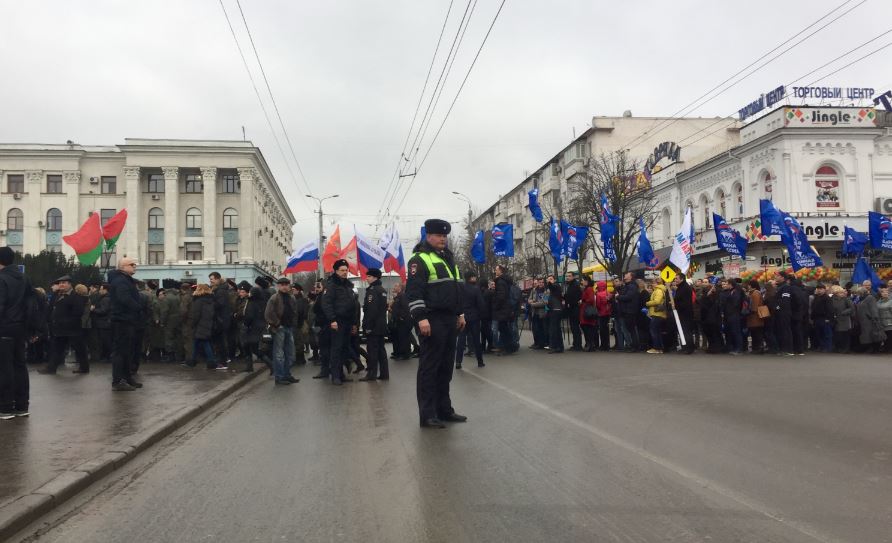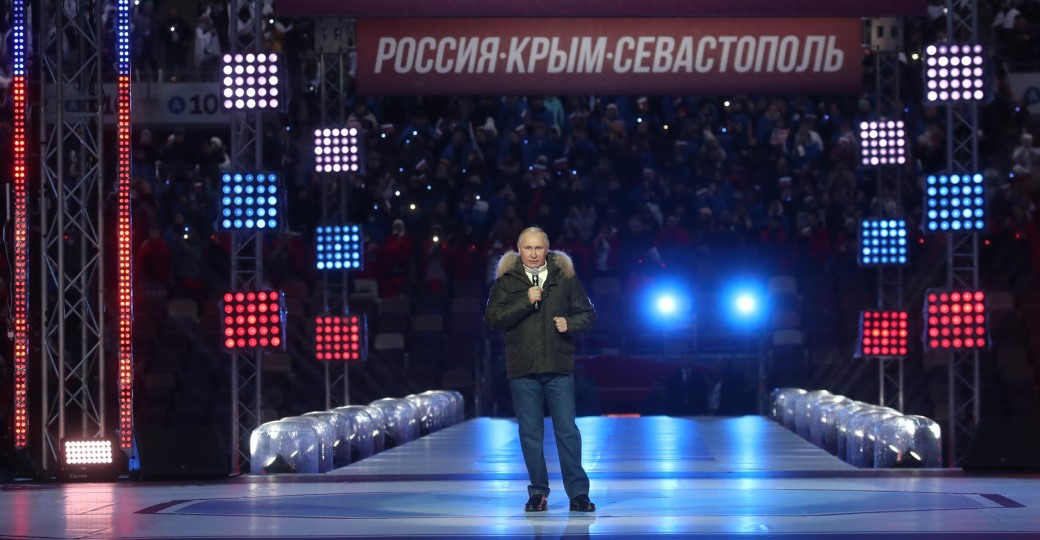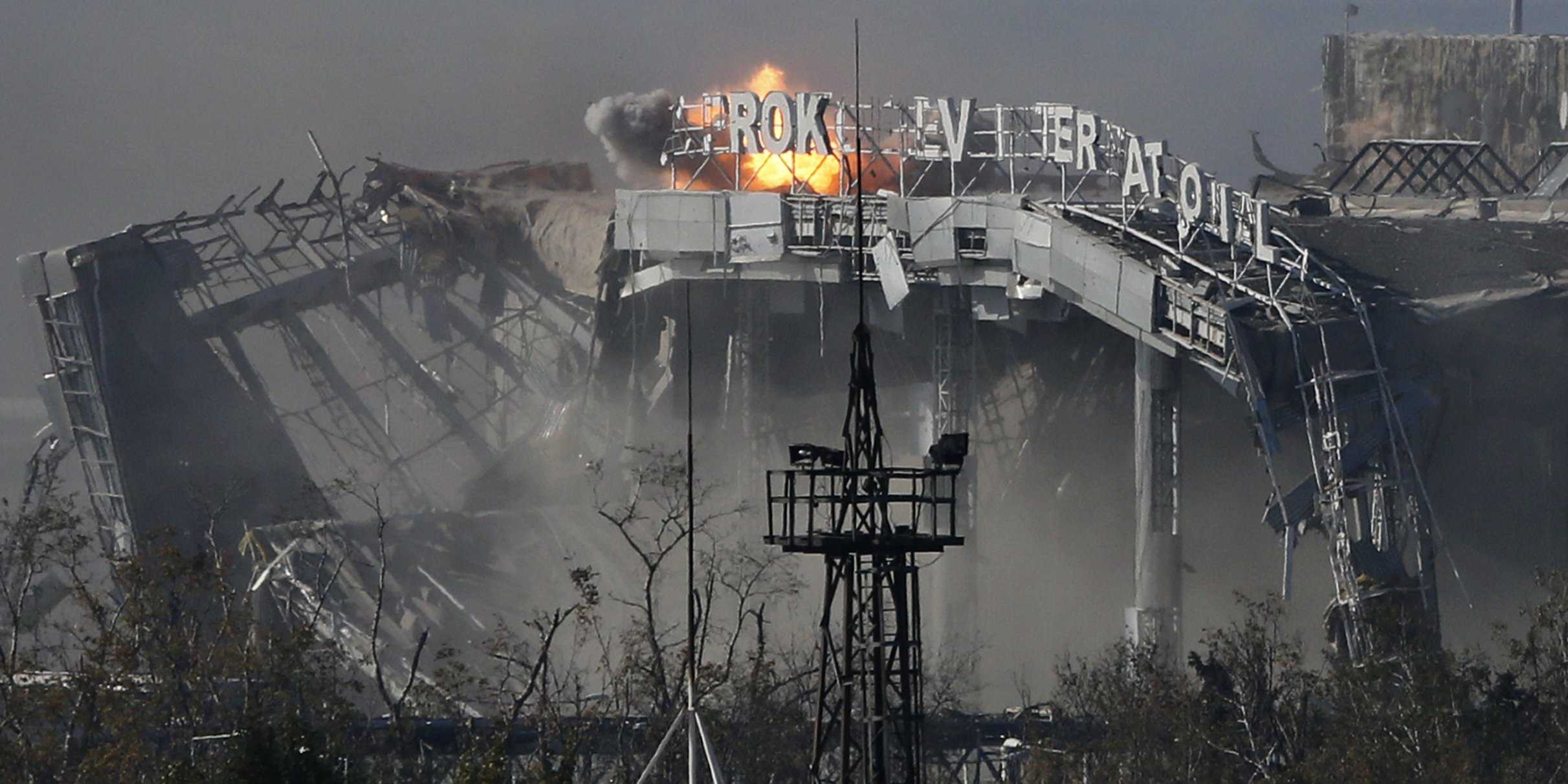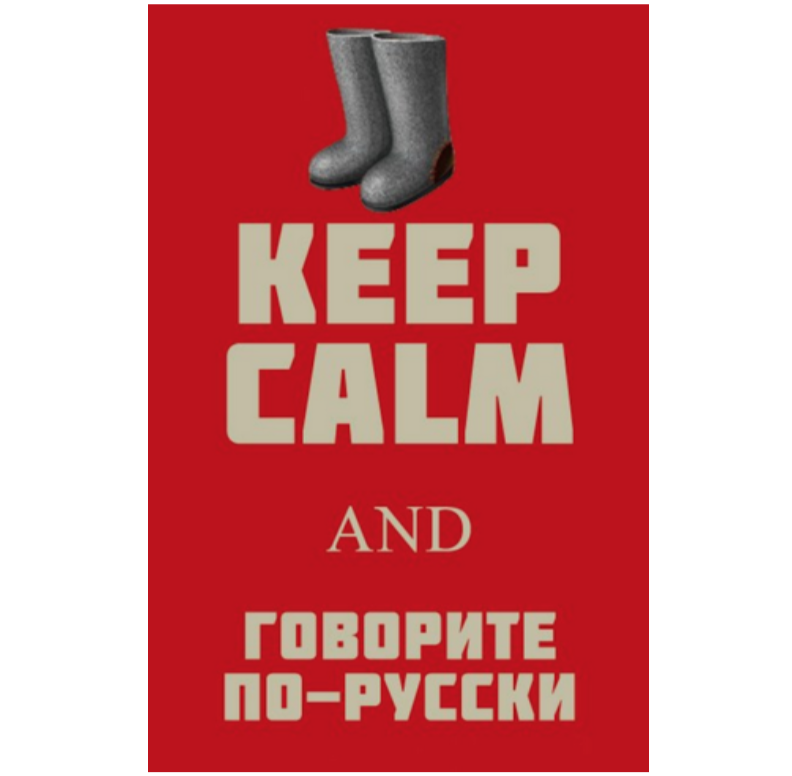Last Wednesday, Putin gave a speech to a crowd of cheering supporters in the Crimean city of Sevastapol. He praised them for voting to become part of Russia four years ago.
“With your decision, you restored historical justice which was violated in Soviet times when Crimea was torn away from Russia,” Putin said.
What Putin calls "historical justice" the international community considers the illegal annexation of Ukrainian territory. Since Crimea came under Russian control in March 2014 life in the peninsula has changed drastically.
To date, at least 70 people have been imprisoned on politically motivated charges, reportedly in connection to their opposition to Russian rule. The Crimean Tatars – a Sunni Muslim minority making up 20% of the population – have become a particular target of repression. According to Ukrainian NGO Crimea SOS, over 27 Tatars have been imprisoned on falsified charges of "extremism," 43 activists have been abducted – allegedly by the Russian authorities. Of those, 18 are still missing and six have been found dead. Since the annexation, at least 30,000 Crimean Tatars have fled the intensifying pressure in the region to other parts of Ukraine. But many refuse to leave their homeland, from where their ancestors were already once deported.
Umer Ibragimov from Bakhchysarai still searching for his 32year-old son, Enver, abducted on 24 May 2016 – allegedly by Russia’s federal security FSB officers. He’s written over one hundred letters to the Russian and Ukrainian authorities but has seen no progress. His folder of carefully filed letters contains a disc of the CCTV footage showing his son being violently abducted, which according to Ibragimov, the police have refused to look at. Many incidents go unreported as families of missing people are afraid of reprisals from the authorities.
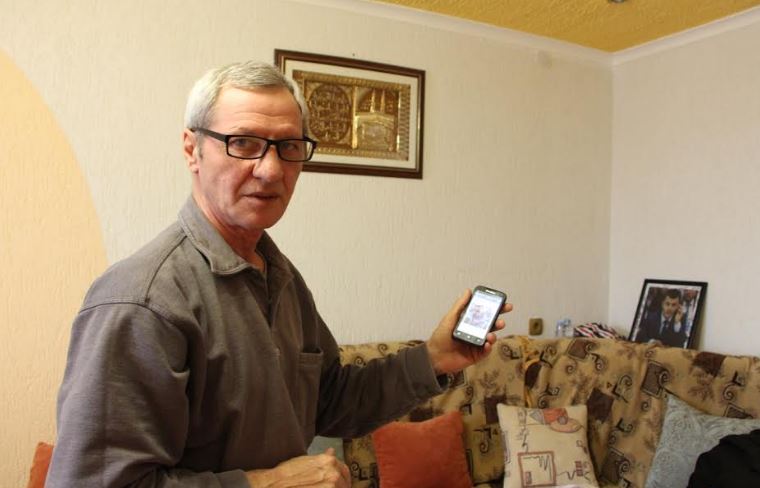
The intensifying repression of media freedom threatens to eliminate exposure of serious human rights abuses. Restrictive media laws and other forms of pressure have transformed the relatively pluralistic media landscape into one pushing the Kremlin line: independent outlets have been forcibly shut down; transmissions of Ukrainian stations were replaced with broadcasts from Russia, and access to many local and Ukrainian media outlets via the internet blocked.
The morning I was supposed to fly back home, the hostel receptionist shook me awake. “There are people here who want to speak to you,” she said. In my half-asleep state, I thought my friend might have arrived early to take me to the airport, but the alarmed look on her face said otherwise.
I walked into the reception in my pajamas where two men, police officers in their early 30s wearing plain clothes, stood waiting with a tall woman in her 20s, their translator. Speaking English in a thick American accent, the woman said they needed to carry out "a standard immigration check." The blue-eyed, blonde officer smiled, while the other dark-haired officer stood crossing his arms looking serious.
As we sat in reception, straight-faced one inspected each page of my passport and made notes, while blue eyes tried to get a conversation going. “It must be an interesting time to be in Crimea since the referendum. The media makes Crimea look dangerous but as you can see it’s safe. What do you think?” he asked, looking down into his hands.
Conscious that I had to leave in less than an hour to make my flight, I answered very briefly.
When we hit a silence, he got out an article I’d written about Crimea on his iPhone. “This is you, isn’t it?” he said, smiling and pointing to my picture at the bottom of the article. “Nice picture. So, are you planning to write about your trip to Crimea?”
“I might”
“What will you write about?”
I turned to the translator and asked: “What does this have to do with an immigration check?”
She sighed and looked at the guy with blue eyes as if this was business as usual.
“I’m just interested,” he answered.
We hit another silence. He stood up and started pacing around the reception area.
“Do you have medical insurance?” Straight-face piped up.
“Yes, I needed it to get my visa,” I replied.
He squinted at my visa like he was examining a bank note.
“You don’t have special medical insurance for Crimea.”
“I’ve never heard of that.”
“Yes, there’s such a thing,” a fleeting smirk cut through his blank expression. He seemed pleased with himself. “Since you don’t have it, we have to take you to our office, it’s a standard procedure for people who break the rules.”
“What law did I break?”
“I’ll show you when you come with us, we need to do a background check on you.”
During the car ride, the officers and translator talked about their talked about their weekends and joked with each other. If they’re laughing, I thought, I can’t be in that much trouble, maybe I’ll even make my flight. But as soon as we got out of the car they went back to being serious.
The office – inevitably in a basement – had a Russian flag draped across a wall and a portrait hanging of Putin wearing a military jacket and aviators.
The straight-faced officer sat at a desk typing out a summary of our conversation, while blue eyes spoke on the phone outside. I sat in silence avoiding the gaze of military Putin.
After about two hours of counting tiles on the wall, the translator and I were left alone while the two men spoke in a low voice to each other in the hall.
They eventually came back and said: “We have witnesses who say you met with locals who are unhappy with the situation in Crimea. We know you used the word 'annexation.' This word is incorrect and rude, we don’t like it. They told us you took videos and sent them to other people. What did the people say to you?”
I had filmed some of my conversations and emailed from Simferopol. Had they just made lucky guesses or they really did have "witnesses"?
Either way, their aim was to make feel I was being monitored to make me think twice about who I met and what I wrote.
That shook me. When I leaned forward I could feel my t-shirt cling onto my sweaty back.
There is a widespread fear of speaking openly and a sense of being monitored in Crimea.
Someone I spoke to WhatsApp stressed that he had no interest in politics and would only speak with me about Crimean culture. "It’s very brave to message people about politics here," he said when we first met in his car. He spoke openly about human rights abuses, but only after turning up the radio volume. In his office, he insisted we turn our phones off and put them in a locker before speaking more. Others I met with took similar precautions. At the time, I considered it a kind of paranoia.
Journalists and activists have resorted to censoring their own work to avoid arbitrary detainment, harassment and violence. Many journalists have left Crimea for other parts of Ukraine. Sergei Mokrushin, an investigative journalist, fled Crimea and resettled in Kyiv after his friends’ homes were raided by the FSB in 2015.
Russian screen writer, Michael Idov, whose work has been stifled in Russia, writes:
“In the absence of hard guidelines (which is the way the Putin government generally likes it, the better to keep the citizenry on its toes), people are left to explore the boundaries of their own bravery.”
A court hearing, two petty fines and six intimidating hours later, I was free to go. I’m aware of how Russian and Ukrainian journalists are typically treated by the authorities, so I consider myself very lucky. In other cases, journalists have been hit much harder.
When I got out of the courthouse, I called the friend who was supposed to drive me to the airport. “What happened to you, then?” he said, looking at my half-pyjama outfit as I got in the car. I waited for him to turn up the radio before I answered.

Read more:
- Soviet-era punishment resurfaces in Crimea: the political abuse of psychiatry
- UK journalist who wrote about Crimean Tatar political prisoners fined, expelled from Crimea
- The US has expanded sanctions over Russia – but will it stop the torture in Crimea?
- A year after prominent activist was kidnapped in Crimea nobody knows if he’s alive
- Don’t forget those kidnapped in occupied Crimea
- Crimean Tatar missing since 2014 found dead in occupied Crimea

